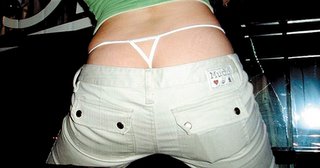i SHOULD be writing papers right now, but i couldn't resist having my say about the current "where's the love for female bloggers" controversy. it's an interesting discussion not because it's going to lead us to some kind of blogsphere sexual revolution but because of the tendencies it points to within the poetry and poetics world.
like this: blurbs.
blurbing has become a poetics "subculture" on par with blogging. a poet produces a new work and then requests blurbs from friends and neighbors, in order to lend the book some kind of "legitimacy" in the market. i do not mean this in the strictly economic sense. i mean it in the social/reproductive sense. the blurbs themselves tend to be reformulations of the work being blurbed within the discourse of each blurb-er's poetics. that is, a poet writes a blurb for a book that directly reproduces his/her own legitimacy by way of the new work. i don't think that's an accident, which is to say, it's no one's "fault." that is simply the function of blurbs. what this function represents, however, is the tendency in poetics to follow -- one could even say, to BE -- an inherently sexist, heteronormative structural kind of development. in fact, i think that it is poor form to lay this all at the feet of the Language Poets; to do so, as some do, to call the Language (and post-Language) poets "sexist," would be to limit ideas about authorship to a definitively non-Language model of genealogy and influence. that is, this is a model of infinite regression. Language Poets didn't invent it; i would argue that it arose as a response to the threats posed by their work.
so. with each new work produced, blurbs allow other -- usually more established -- poets to reproduce themselves. new work is then the "child" of influence and tradition, but not because the work itself necessarily wants to be. instead, because what the work already is (as a work) would be illegitimate if its parents didn't claim parentage. this structure then reflects back onto poetry as a whole, dragging all of its patriarchal inflections along with it. and that, my friends, is what a lot of us call poetics.
am i saying that all poets want is "legitimacy?" no. but i am saying that we all want legitimacy, to some extent, in that we want our work to be in the conversation.
i am thinking, also, of Kathy Acker blurbing her own book with a proclamation that it was all lies.
speaking of Kathy Acker, who famously "love[d] to fuck" and was "totally bored," we can also "do" poetics. take, for example, books like Joe LeSueur's _Digressions on Some Poems by Frank O'Hara_, in which the author reflects on his memories of the social situations that he took part in that may or may not have produced certain of O'Hara's poems. i also recently read Samuel Delany's account, in _1984_ of Ted Berrigan's funeral. both works had in common a kind of materialist history of social poetics, wherein the work is reinvested with the kind of mobilized representations that a reproductive model would like to arrest, perhaps, for the sake of our "national future."
we should all be concerned with reproductive politics. and so, to blogging. might it be that lady bloggers tend to have, as Josh Corey cautiously proposed, more integrated, holistic blogs that combine poetry, theory, and the everyday NOT because we are women but because we do not wish to reproduce a poetics that is structurally patriarchal? this not necessarily due to any ideology, per se, but arising instead out of a structural position that is inherently problematic for us to occupy? it's not lost on me that the examples i cited above are more-or-less "queer" texts; texts like these do significant work in "unworking" (thanks Michael) the family romance of poetics. maybe lady bloggers do this too, because, to some extent, we can't NOT do it. straight guys can do it too: look, for example, at Jim Behrle (who is a total douchebag, by the way), or at Ben Friedlander's early 1990s intervention in the Poetics List, chronicled in _Simulcast_. sure, these examples have little in common with the work of the lady bloggers i am thinking of, but the ends are similar.
i mean, might it be so simple as saying that lady bloggers represent the right to have contact without reproduction, which, if you think of reproduction in political terms, as a mechanism by way of which the family romance produces cultural fictions of unity, is also a project that could be called "queer"? does poetics need to be a community defined by a secure unity, regardless of the costs of constructing that fiction? and, am i maybe marginalizing lady bloggers when i make this argument?
consider this: "This is the vision I see beneath the tiniest gesture of wiping one's lips after a meal or observing a traffic light."








